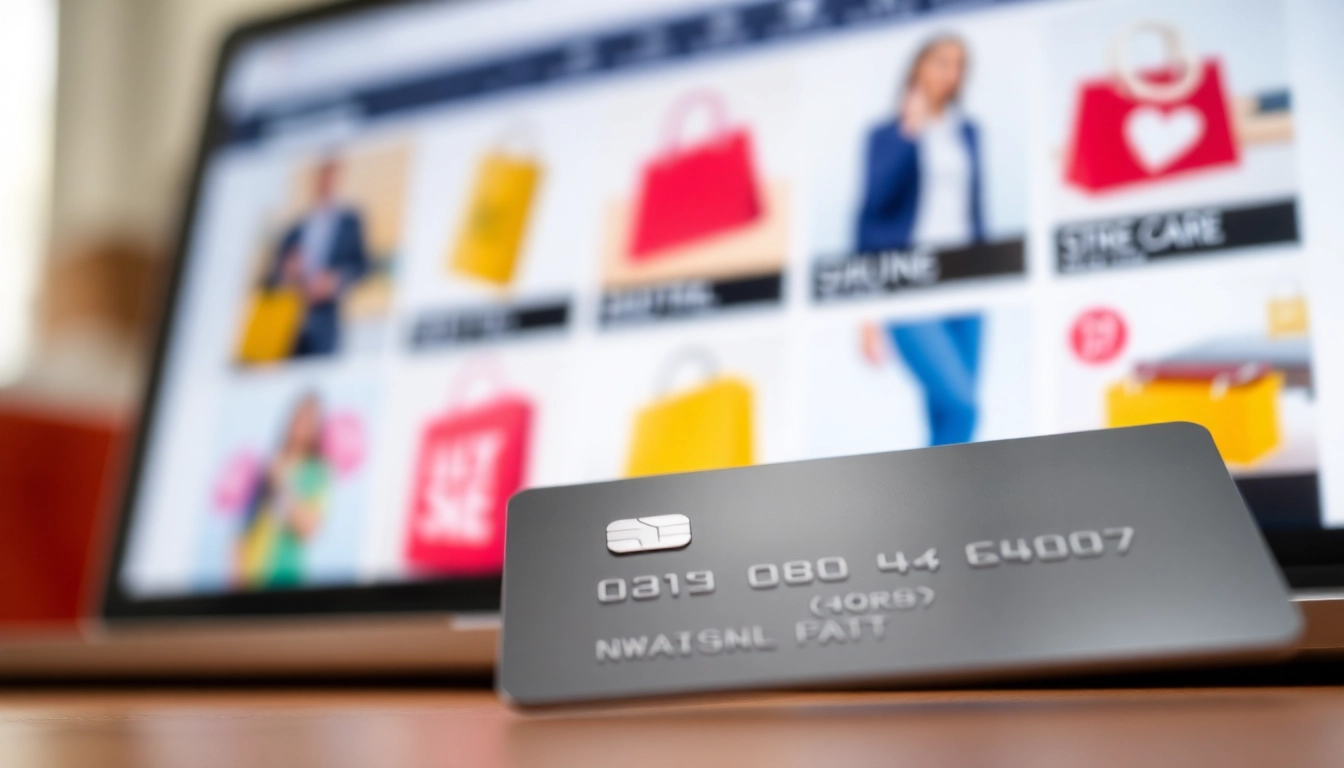Understanding Ultimateshop cvv and Its Importance
In today’s digital economy, where online shopping has become a norm rather than an exception, understanding the intricacies of online payment methods is essential. Among these, the Ultimateshop cvv (Card Verification Value) plays a crucial role in safeguarding transactions. The cvv is a three-digit number found on the back of your credit or debit card that serves to verify that the person making the purchase is indeed the legitimate cardholder. This small piece of information can greatly enhance the security of your online transactions, making it vital for any savvy shopper to comprehend its significance and application. To delve deeper into the nuances of Ultimateshop cvv, let’s explore its definition, functionality, and myths surrounding it.
What is Ultimateshop cvv?
The Ultimateshop cvv is a security feature associated with credit and debit cards. Typically, it’s a three-digit number printed on the back of the card, although it can also appear on the front for some card types. This number is not stored in the card’s magnetic stripe, meaning that it cannot be intercepted during a transaction. Instead, it acts as a valuable layer of protection against fraud, ensuring that even if someone has your card number, they cannot use it without also having access to this verification value.
When making an online purchase, the cvv is typically required along with other information such as the card number and expiration date. This additional requirement helps to confirm both the authenticity of the transaction and the identity of the cardholder, reducing the risk of unauthorized use.
How cvv Enhances Online Security
Online security is a multifaceted challenge, but the use of cvv helps to mitigate several risks. Firstly, it adds a layer of authentication that is not easily replicated. While online thieves may acquire credit card numbers through various means, including phishing or data breaches, the cvv remains a hurdle they must overcome. If a thief uses a stolen card number without the corresponding cvv, the transaction is likely to be declined.
Moreover, the cvv verification process serves as a deterrent to fraud. Knowing that this additional information is required can discourage potential hackers from attempting to use stolen card information. Furthermore, in a scenario where a fraudster does try to make a purchase, the refusal of their transaction can alert them to the fact that the cardholder is vigilant about their security practices.
Common Misconceptions About cvv
Despite its importance, there are several misconceptions regarding cvv that can lead to confusion among consumers. One of the most prevalent myths is that the cvv is a form of encryption. In reality, while it does help secure transactions, it is not an encrypted value in itself. Its simplicity makes it easier to use but does not offer the robust protection that encryption methods provide.
Another common misconception is that the cvv is always needed for every online transaction. While many merchants require cvv for card-not-present transactions, some may not. This variability can confuse consumers and lead to uncertainty about when to use it.
Finally, some people believe that providing their cvv over the phone or through email is safe. However, this is a risky practice; legitimate companies will never ask for this information in unsecured communication channels. Awareness of these misconceptions can empower consumers to make better decisions regarding their online shopping habits.
How to Find Your Ultimateshop cvv
Locating Your cvv on Credit Cards
Finding your cvv is straightforward. For most credit and debit cards, locate the three-digit number on the back of your card, usually located in the signature strip. If you’re using an American Express card, the cvv will be found on the front and is typically a four-digit code. It is essential to treat this number with the same care as your card number, as sharing it can lead to fraud.
Digital Wallets and cvv Accessibility
As more consumers turn to digital wallets and mobile payment solutions, such as Apple Pay or Google Wallet, understanding how these systems utilize the cvv is paramount. When linked to your traditional bank accounts or credit cards, these platforms may securely store your cvv to streamline purchases. Generally, these wallets do not display the cvv number to users, but they manage the underlying transaction details in a secure manner. This security feature minimizes the risk of exposing your cvv during online purchases. However, it is still essential to maintain proper security practices with your wallet, keeping passwords strong and two-factor authentication enabled whenever possible.
Verification Processes and Ensuring Correct Use
To ensure that you’re using your cvv correctly, familiarize yourself with the verification processes involved in online transactions. When entering your credit card details on a website, ensure that the site is reputable and utilizes HTTPS encryption, indicating a secure connection. After entering your cvv, you may also want to review the information displayed before submitting it. This way, you avoid any errors that could complicate your transactions or, worse yet, result in fraud.
Best Practices for Safe Online Shopping with Ultimateshop cvv
Choosing Secure Websites for Purchases
As a rule of thumb, it is prudent to shop only from secure and reputable websites. Look for signs of security compliance, including SSL certificates, which can be identified by the “https://” in the URL. Additionally, check for recognizable trust badges displayed on the site that indicate compliance with industry standards and practices. Reading reviews and checking the return policy can also provide peace of mind when deciding which merchants to trust.
Avoiding Common Online Shopping Pitfalls
Shopping online can lead to various pitfalls that may compromise security. One common mistake is using public Wi-Fi networks for transactions, as these are often unsecured and can allow hackers to intercept sensitive data. Instead, it’s best to conduct dealings over secure, private networks. Another pitfall is using weak passwords or the same password across multiple sites. Utilize a password manager to generate and store complex passwords for different accounts to avoid this issue. Regularly monitor your bank statements for any unauthorized transactions, as early detection can mitigate potential damages.
Using Ultimateshop cvv to Maximize Security
Incorporating your Ultimateshop cvv as part of your online shopping strategy can significantly enhance security. Always ensure it’s entered accurately and only share it with trusted vendors who have established security practices. Furthermore, consider using virtual cards, which generate temporary card numbers along with a cvv for online purchases. This method significantly reduces the chances of your actual card information being compromised.
Challenges in Using Ultimateshop cvv
Issues with Misused cvv Information
Despite the security provided by cvv, it is not foolproof. Misuse can happen if a thief gains access to the cvv through less secure methods, such as phishing scams or malware. Merchants who do not follow stringent security protocols may also pose risks. This makes it essential for consumers to stay informed about the latest online scams and to take necessary precautions to safeguard their information.
Steps to Take if You Encounter Fraud
In the unfortunate event of fraud, immediate action is crucial. Begin by reporting the incident to your bank or credit card issuer to freeze or cancel your card. Following that, monitor your other accounts for unusual activity and report any discrepancies for investigation. Depending on the severity, filing a report with your local authorities may also be necessary. It’s advisable to update passwords and security questions for online accounts that may have been affected as a precaution against further issues.
Understanding the Limitations of cvv
While cvv enhances security, it’s crucial to understand its limitations. The cvv alone does not guarantee protection against all forms of fraud, especially in cases where card details are compromised. Moreover, some merchants may not require cvv input, making it essential to also consider other secure practices such as using two-factor authentication wherever possible. As technology evolves, so can the methods of fraud, so remaining vigilant is key to protecting your financial health.
Future of Online Purchases and cvv Standards
Emerging Technologies in Payment Security
The landscape of online payments is continually evolving, with emerging technologies set to enhance security standards. Innovations such as biometric authentication, including fingerprint and facial recognition, are becoming more prevalent. These technologies aim to offer additional verification methods that go beyond traditional card information and cvv. Moreover, the adoption of blockchain technology for secure transactions could revolutionize how payment data is stored and transmitted, which may decrease the relevance of cvv as a standalone security feature.
How Regulations are Shaping cvv Usage
Regulatory bodies are increasingly focusing on payment security, further influencing how cvv is utilized. The Payment Card Industry Data Security Standard (PCI DSS) outlines security measures meant to protect cardholder information, including guidance on the proper handling of cvv data. As regulations continue to evolve, they may impose stricter requirements on merchants regarding the protection of customer data, enhancing security and consumer confidence in online transactions.
Preparing for the Next Generation of Secure Transactions
To prepare for the future of secure transactions, consumer awareness is key. Staying informed regarding both emerging technologies and evolving regulations can empower consumers to make educated decisions about their financial data. Engaging with resources that provide information on best practices for online security will also ensure you remain vigilant against potential threats. Building habits around using secure connections, strong passwords, and reliable vendors can pave the way toward safer online shopping experiences.



